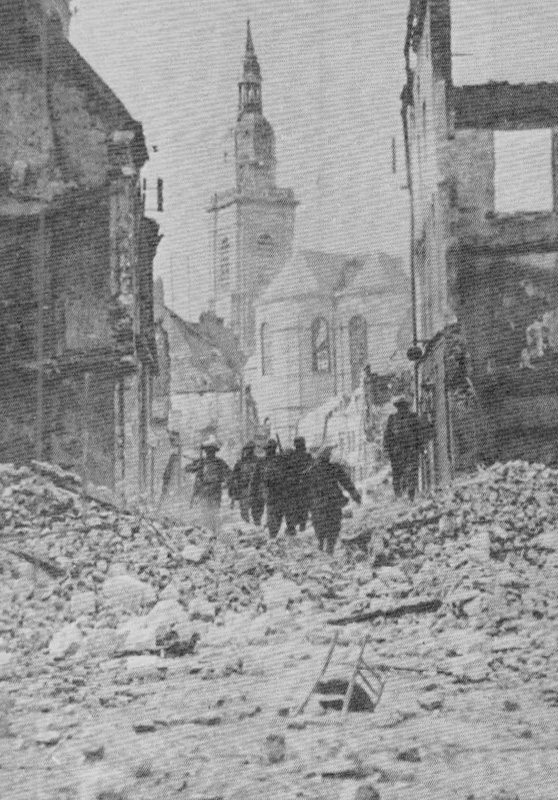
HISTORICAL EVENTS THAT TOOK PLACE ON THIS DAY IN CANADA
8 August

Canadian Troops in France
Canada's 100 Days
The beginning of the end of "the war to end wars" was on August 8, 1918. It is known in history now as "the 100 Days of the Canadian Army." From the enemy's point of view, August 8, 1918, was "the black day of the German army," a phrase used by General Erich Ludendorff.
For three weary years, the Allies and the Germans had opposed each other in muddy trenches, sometimes only 50 yards apart, along a front of 300 miles from the sea coast to the frontier of Switzerland. Trench warfare ended in March, 1918, when the Germans broke through at Amiens, inflicting heavy losses on the British. They nearly got through to Paris, but could not keep up the pace.
The Canadians had been held in reserve until August 8, and now, with the Australians, they were used in a move that fooled the enemy. A small part of the Canadian and Australian armies was sent to Flanders as a decoy. Their main forces were moved to Amiens only a few hours before zero hour.
The decoy worked. When the Canadians and Australians began their attack on Amiens, supported by nearly 500 tanks, they found that the Germans had left only six reduced divisions to defend the city. Tanks were comparatively new in warfare, having been used for the first time in the Battle of the Somme in 1916.
A mist helped to hide the attacking Canadians and Australians at Amiens, and with firm ground they were able to move forward 8 miles on a front which was 15 miles wide. The tide of battle had been turned, although there was a great deal of hard fighting ahead. By October, the Canadians had lost 16,000 men in the drive, but, helped by four British Divisions, they destroyed nearly fifty German divisions, one-quarter of the German force on the Western Front.
OTHER NOTABLE EVENTS ON THIS DAY IN CANADIAN HISTORY
8 August
-1619 The first Lutheran service in Canada was held at Icy Cove, Hudson Strait, during the Jens Munck expedition.
-1665 Father Allouez named Lake Superior "Lake Tracy" after the Marquis de Tracy.
-1686 Fort Albany, Hudson Bay, surrendered to Iberville after a siege.
-1774 Spanish explorer Perez discovered Nootka Sound, Vancouver Island.
-1863 Angus McAskill, famous Cape Breton giant, died.
-1865 The Confederation committee that had gone to Britain reported to the Belleau-Macdonald government at Quebec.
-1963 Canada signed an atomic test agreement with Russia, Britain and the United States.